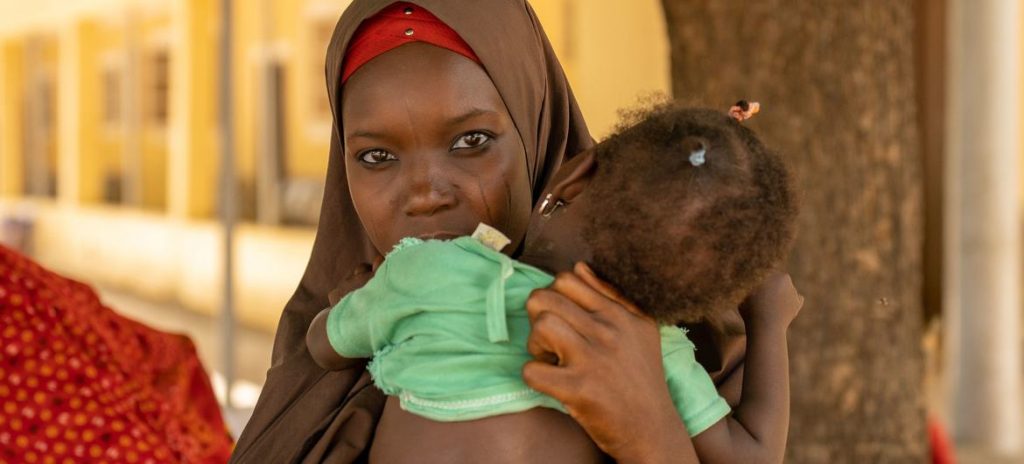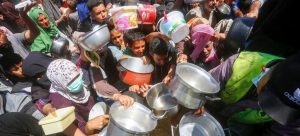
The World Food Programme is forced to suspend all emergency food and nutrition aid for 1.3 million people in northeast Nigeria due to funding cuts. (UNOCHA/Adedeji Ademigbuji)
At a time of escalating violence and record levels of hunger in Nigeria, critical funding shortfalls are forcing the UN World Food Programme (WFP) to suspend all emergency food and nutrition aid for 1.3 million people in the northeast of the country.
The WFP has been able to hold hunger at bay across northern Nigeria in the first half of 2025. However, funding shortfalls are jeopardising such efforts, with lifesaving programmes set to grind to a halt by the end of July.
Without immediate funding, millions of vulnerable people will have no food assistance. That’s because the WFP is completely out of food and nutrition stocks, with the organisation’s last supplies leaving warehouses in early July.
With lifesaving assistance set to end after the current round of distributions, millions of vulnerable people will face impossible choices. They have to either endure increasingly severe hunger, migrate, or even risk possible exploitation by extremist groups.
Children at risk
“Nearly 31 million people in Nigeria are now facing acute hunger, a record number,” said WFP Country Director David Stevenson. Among them, children are set to be among the worst affected if vital aid ends.
More than 150 WFP-supported nutrition clinics in Borno and Yobe states are set to close if a funding renewal does not come. That means over 300,000 children under the age of two will lose access to potential lifesaving treatment.
“This is no longer just a humanitarian crisis,” said Stevension. “It’s a growing threat to regional stability as families pushed beyond their limits are left with nowhere to turn.”
Extremist groups
In conflict-affected areas in the north, escalating violence from extremist groups is driving mass displacement. Some 2.3 million people across the Lake Chad Basin have had to flee their homes.
Mass displacement is straining already limited resources and pushing communities to the brink. Meanwhile, the lack of emergency food assistance risks increasing recruitment by these groups.
“When emergency assistance ends, many will migrate in search of food and shelter. Meanwhile, others will adopt negative coping mechanisms, including potentially joining insurgent groups, to survive,” said Stevenson.
“Food assistance can often prevent these outcomes,” he added, as the WFP urgently seeks $130 million to sustain food and nutrition operations through the end of the year.
(This is taken from the United Nations news feed. The original story may be found here.)



